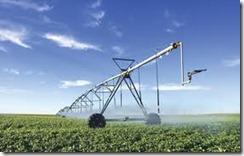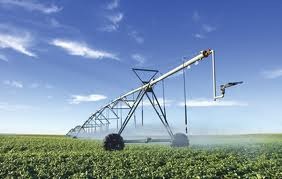 To counter the impacts of climate change on agriculture, the government has established climate observation posts nationwide.
To counter the impacts of climate change on agriculture, the government has established climate observation posts nationwide.
Meteorological, Climatological and Geophysical Agency (BMKG) head Sri Woro Budiati Harijono said Tuesday that the government would develop Agricultural Meteorology Stations (SMPK), commonly known as agro-climate posts, in 100 priority areas, saying that more accurate climate information was the key to securing food production.
“We will develop them in stages, starting with 34 stations this year and 50 next year,” Sri Woro said at a press conference on the sidelines of a two-day international workshop on climate information services for the agriculture and forestry sectors.
The new posts are in addition to the 40 stations already established in major rice-producing areas.
The government will spend more than Rp 50 billion (US$5.9 million) on the 100 new posts.
Sri Woro said agro-climate posts would deliver weather forecasts in more detail, enabling farmers to develop a better farming calendar and in choosing appropriate crop varieties to grow at the right time.
Expanding the network of agro-climate posts, as well as developing “climate schools” for farmers, are part of follow-up measures taken by the agency to ensure rice production security as mandated by a presidential instruction on the security of national rice production in facing extreme weather.
“By attending climate schools, farmers have better knowledge of when the dry season will come, how to anticipate it, and what appropriate rice varieties are suitable replacements in certain times,” Sri Woro said.
Global food stocks, including in Indonesia, are affected by drastic changes in weather patterns and production estimates, as climate change has led to more unpredictable wet and dry seasons.
“Around 70 percent of global water use is in agriculture. Changes in rainfall, drought, or flooding would therefore affect agriculture and food production,” Lampung State University professor of agricultural economics Bustanul Arifin said.
He added that a dry season with high humidity in 2010 triggered a massive attack by planthoppers, blamed for the current decrease in food production.
“We have received several reports saying that pests are currently attacking paddy fields in several rice-producing areas in East Java, such as Ngawi and Madiun, and even rice production centers in Central Java such as Sragen,” Bustanul said.
The government is targeting 3.3 percent annual growth in food production that may lead to a surplus of 10 million tons of rice by 2014.
“The question is, can we achieve that target,” Bustanul said, adding that as of July 2011, rice production reached 68.6 million tons, showing only a 2.4 percent annual growth.
Apart from the agriculture sector, the BMKG will also improve climate information for the forestry sector by providing support on climate data for the implementation of the Indonesian National Carbon Accounting System (INCAS) and for monitoring the Fire Danger Rating System (FDRS).

Deprecated: strpos(): Passing null to parameter #1 ($haystack) of type string is deprecated in /home/agriviek8Qv/agriviet.net/public_html/wp-includes/comment-template.php on line 2522